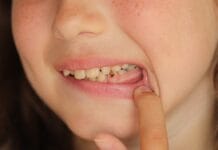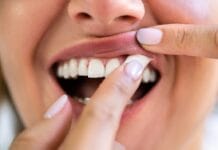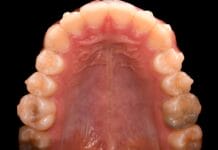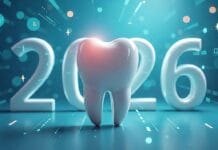Dental pain is often managed with non-steroidal anti-inflammatory drugs (NSAIDs), acetaminophen, or, in severe cases, opioid medications. There are some limitations to managing dental pain in patients who cannot take NSAIDs, acetaminophen, or opioid medications. A new study assessed the effectiveness and safety of cannabidiol (CBD) as an analgesic for patients with emergency acute dental pain.1
There may be potential for cannabinoids, specifically tetrahydrocannabinol (THC) and cannabidiol (CBD), as alternatives to opioids for pain management. Changes in marijuana laws have shown a decrease in opioid prescriptions, and clinical trials have shown success in using THC and CBD for pain relief, particularly in cancer, chronic, and neuropathic pain.1
However, THC’s psychoactive nature limits its use, while CBD, being non-psychoactive and non-addictive, shows promise as an analgesic. Preclinical studies support CBD’s analgesic and anti-inflammatory properties, and limited clinical evidence suggests its efficacy in peripheral neuropathy and chronic pain.1
The Study
Over 100 clinical trials have investigated CBD’s potential as a pain reliever. The study aimed to assess the effectiveness and safety of an FDA-approved CBD drug for emergency dental pain, hypothesizing at least a 30% reduction in pain compared to preoperative levels. This effect size is comparable to that of 400 mg ibuprofen for acute dental pain.1
The research undertaken was an investigator-led, triple-arm, phase IIA clinical trial employing randomization and placebo control while also employing double masking (both participants and outcome assessors were unaware of the treatment group assignments). The study involved adult individuals aged between 18 and 75 years who sought treatment at the UT Health School of Dentistry in San Antonio, Texas, specifically for moderate to severe odontogenic pain.1
A total of 61 participants were included in the study after the eligibility criteria were met. Study participants were randomly placed into one of three groups and administered a placebo, CBD 10 mg/kg, or CBD 20 mg/kg. Pain was measured at baseline and seven subsequent time points of 15, 30, 45, 60, 90, 120, and 180 minutes after administration for a total observation period of three hours.1
Pain was assessed through several questionnaires, including the VAS (0-100 mm) pain intensity scale, psychoactive and mood change questionnaires, and a questionnaire on adverse events. Additionally, a digital bite transducer was used to measure changes in bite force, as an increase in bite force would indicate reduced pain.1
The Results
In this study, CBD 10 mg/kg and CBD 20 mg/kg demonstrated a similar pain-relieving effect, with CBD 20 mg/kg showing a faster onset of significant pain relief. However, CBD 10 mg/kg exhibited lower raw pain scores compared to CBD 20 mg/kg, particularly between 30 to 90 minutes, possibly due to sample size limitations and variability among subjects.1
Normalizing the pain scores to baseline revealed a clearer dose-dependent effect, with CBD 20 mg/kg showing a higher percentage of pain reduction, though not statistically significant, for the first 120 minutes. Additionally, the study noted a higher ratio of females to males, consistent with previous findings of increased pain sensitivity in women. While sex was not significant among the treatment groups, a more balanced sex distribution was observed in the placebo group, suggesting a potential for inflated pain relief in that group.1
In addition, a single dose of CBD did not induce significant psychoactive or mood effects, but it did lead to sedation, a known side effect documented in previous studies and included on the drug label. This sedation is associated with calming and anxiolytic effects rather than drowsiness, likely due to CBD’s interaction with the serotonin (5-HT)1A receptor.1
These findings support the safe use of CBD drugs for dental patients, especially considering that multiple doses of analgesics are typically needed for dental pain management. Although abdominal pain and mild diarrhea are common adverse effects noted on the drug label, participants in the study experienced relief from diarrhea symptoms when given loperamide.1
Conclusion
Despite its small sample size, this study revealed significant findings regarding the analgesic potential of pure CBD for emergency dental pain. The research demonstrated that CBD could offer more than 70% pain relief and increase bite force in patients, maintaining a safe drug profile with minimal side effects.1
However, limitations include the inability to explore age and sex differences due to the small sample size, as well as the lack of assessment of factors such as preexisting chronic pain and social and psychological influences on pain perception. These factors will be considered in future larger-scale phase III clinical trials.1
Overall, this study suggests CBD may be a promising alternative to opioids for acute inflammatory pain conditions, potentially contributing to efforts to combat the opioid epidemic.1
Before you leave, check out the Today’s RDH self-study CE courses. All courses are peer-reviewed and non-sponsored to focus solely on high-quality education. Click here now.
Listen to the Today’s RDH Dental Hygiene Podcast Below:
Reference
- Chrepa, V., Villasenor, S., Mauney, A., et al. Cannabidiol as an Alternative Analgesic for Acute Dental Pain. J Dent Res. 2024; 103(3): 235-242. https://www.ncbi.nlm.nih.gov/pmc/articles/PMC10900863/











